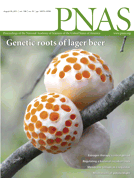Nature vs. Nurture: Study Shows the Perceived Gender Gap in Spatial Reasoning Skills May Be Cultural in Origin
Posted on Sep 02, 2011 | Comments 0
 The common perception is that, on average, men are better than women at mathematical reasoning. But an interesting new study in the journal Proceedings of the National Academy of Sciences finds that the gender gap in spatial reasoning abilities may be cultural rather than biological.
The common perception is that, on average, men are better than women at mathematical reasoning. But an interesting new study in the journal Proceedings of the National Academy of Sciences finds that the gender gap in spatial reasoning abilities may be cultural rather than biological.
The study examined two tribes in northeastern India. The agrarian tribes live in close proximity in a rural area and are very similar genetically. The Karbi tribe is male-dominated. But in the Khasi tribe, the women own all the land and their family’s possessions. Daughters inherit the family’s property.
Researchers gave villagers in both tribes a three-dimensional puzzle that they were asked to solve. In the male-dominated Karbi tribe, men took 35 percent less time to solve the puzzle. In the Khasi tribe, there was no gender difference in the time it took to solve the puzzle.
The authors of the study admit that their experiment demonstrates that cultural influences impacted spatial reasoning skills solely on the one minor task presented to the two tribes and that generalizations cannot be assumed. But they assert that their results “show the role of nurture in the gender gap in cognitive abilities.”
Filed Under: Research/Study








